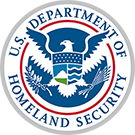Security Clearance Process

All our employees must be reliable, trustworthy and be able to obtain and maintain a Top Secret clearance with Secretive Compartmented information (TS/SCI).
If you receive and accept a tentative job offer with DHS I&A, you will have to go through our security clearance process. You must complete this process before we can extend a final job offer.
How long does the security clearance process take?
The security clearance process takes an average of three to four months to complete but can take up to a full year to complete depending on your background. For example, in some cases information about your finances, family members or foreign contacts requires in-depth verification which can lead to delays in the security process.
What information do you evaluate in the security clearance investigation?
During the background and security clearance investigation, investigators will review delinquency in paying debts, tax obligations, certain criminal offenses and the illegal use or possession of drugs.
We encourage you to read the adjudicative guidelines for determining access to classified information to review how these and other considerations could affect your application. Some issues may not stop you from receiving a security clearance but may lengthen the time to complete the clearance process.
How can I prepare for the security clearance process?
- Track where you travel—Extensive travel outside of the United States can lengthen the security clearance process. You must report all travel outside the U.S. unless travel was required for U.S. government business. Keep records of the day, month and year when you began and ended all trips. Document addresses and contact information of the landlord for places you stayed more than 90 days. Keeping track as you go will assist in accurately recounting these details when required.
- Remember your contacts—You will need to report all interactions with non-US citizens (foreign nationals). If you have an extensive network of foreign national acquaintances, focus on those with whom you have had the closest ties or interaction with over the last seven years.
- Do not use illegal drugs, including marijuana. While legal in several states, marijuana is still illegal under federal law. Do not misuse legal or prescription drugs.
- Understand your financial situation—We understand you may have debt related to your education, living expenses, etc. However, we may view considerable debt as a vulnerability that could be used against you by foreign adversaries. Review your finances and credit score. Make sure you are up-to-date with federal, state, property and other taxes. If you have ever filed for bankruptcy, we will need the details, including the docket or case number.
- Safeguard your social media—Online relationships matter just as much as interpersonal ones. Establish strict online settings; do not include your address, date of birth or other personally identifiable information in a profile. Do not download files illegally and think before you post. While privacy settings are not foolproof, they can help to reduce your online exposure.


